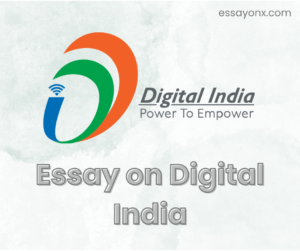Essay on Corruption: A Menace to Society: In this essay, we explore the detrimental effects of corruption on individuals and communities, as well as the importance of combating this pervasive problem.
Introduction:
Corruption is like a big problem that makes things unfair and hurts everyone. It happens when people in power use their position to get something for themselves, instead of helping others. In this essay, we’ll talk about how corruption affects society and why it’s important to stop it.
What is Corruption?
Corruption refers to the abuse of power, position, or authority for personal gain or to benefit a particular group. It takes various forms, including bribery, embezzlement, nepotism, cronyism, and extortion. Corruption undermines the rule of law, distorts economic decision-making, and perpetuates inequality and injustice.

Effects of Corruption:
Corruption has far-reaching consequences for society, economy, and governance. It undermines trust in government institutions and erodes public confidence in the fairness and integrity of the system. Corruption diverts resources away from essential services such as healthcare, education, and infrastructure, perpetuating poverty and inequality. It also distorts market competition, stifles economic growth, and deters foreign investment, hampering development efforts.
Social Impact:
Corruption breeds a culture of impunity, where the powerful and well-connected escape accountability for their actions. This fosters cynicism, disillusionment, and apathy among citizens, who may feel disempowered and marginalized. Corruption also undermines social cohesion, exacerbates social tensions, and fuels resentment and mistrust among different segments of society.
Economic Consequences:
The economic costs of corruption are staggering. It distorts market mechanisms, stifles innovation and entrepreneurship, and undermines investor confidence. Corruption leads to inefficiency, misallocation of resources, and reduced productivity, hindering economic growth and development. Moreover, corruption discourages foreign investment, as investors may perceive corrupt environments as risky and unpredictable.
Political Ramifications:
Corruption undermines the legitimacy of government institutions and weakens democratic governance. It distorts electoral processes, undermines the independence of the judiciary, and corrodes the rule of law. Corrupt politicians and officials may prioritize personal interests over the public good, leading to policy decisions that serve narrow interests rather than the common good.
Combating Corruption:
Combating corruption requires a multi-faceted approach involving preventive measures, enforcement mechanisms, and institutional reforms. Strengthening anti-corruption laws, promoting transparency and accountability, and empowering independent oversight bodies are essential steps in curbing corruption. Additionally, fostering a culture of integrity, promoting ethical leadership, and raising public awareness about the harmful effects of corruption can help change societal attitudes and behaviors.
Conclusion:
Corruption is a pervasive problem that threatens the fabric of society and undermines the principles of democracy, justice, and equality. It is imperative to tackle corruption at all levels, from grassroots initiatives to national and international efforts. By fostering a culture of transparency, accountability, and integrity, we can work towards building a society where corruption has no place, and where the interests of all citizens are served equitably and justly.

